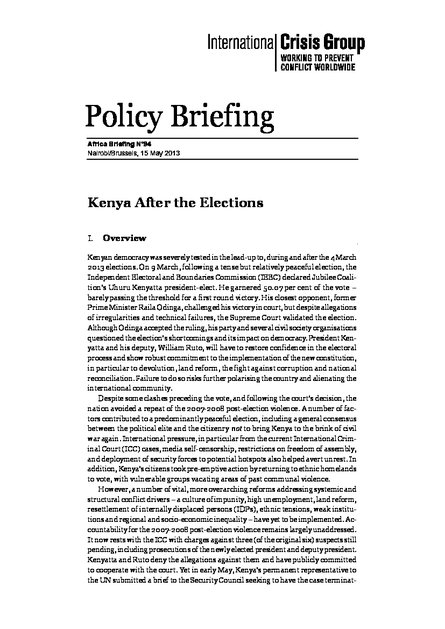
Kenyan democracy was severely tested in the lead-up to, during and after the 4 March 2013 elections. On 9 March, following a tense but relatively peaceful election, the Independent Electoral and Boundaries Commission (IEBC) declared Jubilee Coalition’s Uhuru Kenyatta president-elect. He garnered 50.07 per cent of the vote – barely passing the threshold for a first round victory. His closest opponent, former Prime Minister Raila Odinga, challenged his victory in court, but despite allegations of irregularities and technical failures, the Supreme Court validated the election. Although Odinga accepted the ruling, his party and several civil society organisations questioned the election’s shortcomings and its impact on democracy. President Kenyatta and his deputy, William Ruto, will have to restore confidence in the electoral process and show robust commitment to the implementation of the new constitution, in particular to devolution, land reform, the fight against corruption and national reconciliation. Failure to do so risks further polarising the country and alienating the international community.